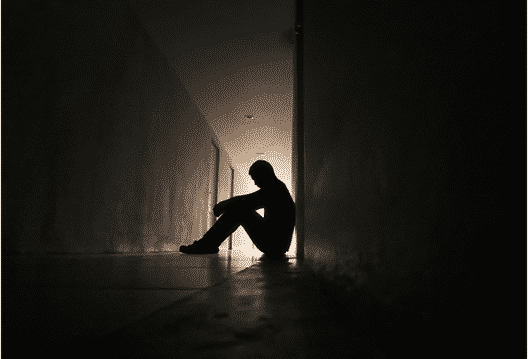Get the help you need right now 855-900-8437 Get Help Now
Get the help you need right now 855-900-8437 Get Help Now
November 22, 2019
While awareness of post-traumatic stress disorder (PTSD) continues to increase, clinical depression in the fire service is less recognized, understood and discussed.
Major Depressive Disorder (MDD), also referred to as clinical depression, is a serious debilitating mood disorder. MDD is characterized by recurring major depressive episodes — periods of prolonged sad or depressed mood accompanied by physical, cognitive and behavioral changes.
Although fire fighter suicide is often discussed in the context of PTSD, you may be surprised to learn that suicidal thoughts are not part of the clinical criteria for PTSD.
While it is true that someone with PTSD may experience suicidal thoughts, PTSD alone does not cause these symptoms. If someone is experiencing suicidal thoughts, feelings, and behaviors, in most cases, there is another mental health problem at issue. The medical community typically views suicidal thoughts and behavior as a symptom of a major depressive episode.
Consider the facts. While those coping with PTSD are six times more likely to attempt suicide, someone with MDD is nearly 20 times more likely to think about or attempt suicide than someone without the disorder.

A major depressive episode is a period of two or more weeks in which five of the seven symptoms listed below are present for most of the day, almost every day. Symptoms must include one of the first two symptoms listed to be considered a major depressive episode:
Major depressive episodes can occur as a single episode, as a series of recurring episodes (Major Depressive Disorder), along with manic symptoms (Bipolar Disorder) or, in some, psychotic disorders. While suicidal thoughts or behavior may occur outside of one of these mental health conditions, it is not common. Sudden suicidal thoughts or behavior in the absence of a diagnosable mood disorder may be an atypical response to an extreme life stressor or caused by a medical issue (e.g., medication reaction).
While suicidality is not considered a mental health disorder on its own, the topic remains controversial. Suicidal behavior disorder is currently categorized as a condition for further study in the current diagnostic manual for mental health disorders published by the American Psychiatric Association.
Clinical depression is not a natural or inevitable progression of PTSD. However, PTSD can certainly cause distinct changes in thought and mood, along with a sharp decline in daily and social functioning. Many people who have coped with PTSD will tell you — this is a condition of avoidance.
In an attempt to avoid the people, places, things, and experiences associated with the original traumatic event, a person may stop participating in daily life and become extremely isolated. This experience contributes to feelings of hopelessness, helplessness, alienation and, inevitably, worthlessness. Left untreated, such symptoms can certainly progress into clinical depression.

Stigma may play a role. For some, PTSD may be viewed as a more acceptable mental health problem because it can be directly linked to a traumatic experience that occurred on the job.
On the other hand, clinical depression is caused by a complex mix of emotional, social, environmental and biological factors that are less directly linked to firefighting as an occupation. This distinction may make it more difficult for some fire fighters to speak up and ask for help.
Whether you suffer from PTSD, depression, anxiety or substance abuse, everyone deserves to get help. The IAFF Center of Excellence is a residential treatment facility exclusively for IAFF members. The Center treats a variety of behavioral health problems; less than half of the patients treated are admitted with a primary PTSD diagnosis. Call for a confidential screening to determine if the Center is right for you.
Lauren Kosc, M.A., LCPC is a behavioral health specialist, licensed therapist, and blog editor for the International Association of Fire Fighters. If you are an IAFF member in recovery and want to share your story, contact lkosc@iaff.org.
Sources:
Kessler, R. C., Borges, G., & Walters, E. E. “Prevalence of and risk factors for lifetime suicide attempts in the National Comorbidity Survey.” Archives of General Psychiatry, July 1999. 56(7), 617–626. Accessed October 22, 2019.
National Institute of Mental Health. “Depression.” Accessed October 22, 2019.
[ii] American Psychiatric Association. (2013). Diagnostic and Statistical Manual of Mental Disorders (5th ed.). Washington, DC.
Medical Disclaimer: The IAFF Center of Excellence aims to improve the quality of life for people struggling with a substance use or mental health disorder with fact-based content about the nature of behavioral health conditions, treatment options and their related outcomes. We publish material that is researched, cited, edited and reviewed by licensed medical professionals. The information we provide is not intended to be a substitute for professional medical advice, diagnosis or treatment. It should not be used in place of the advice of your physician or other qualified healthcare provider.